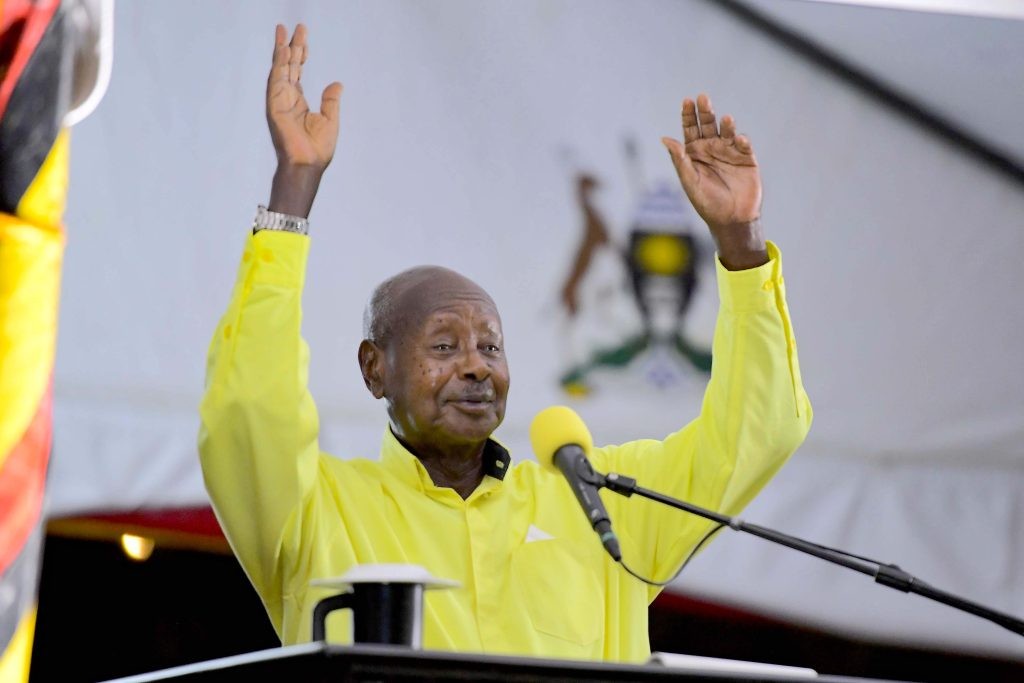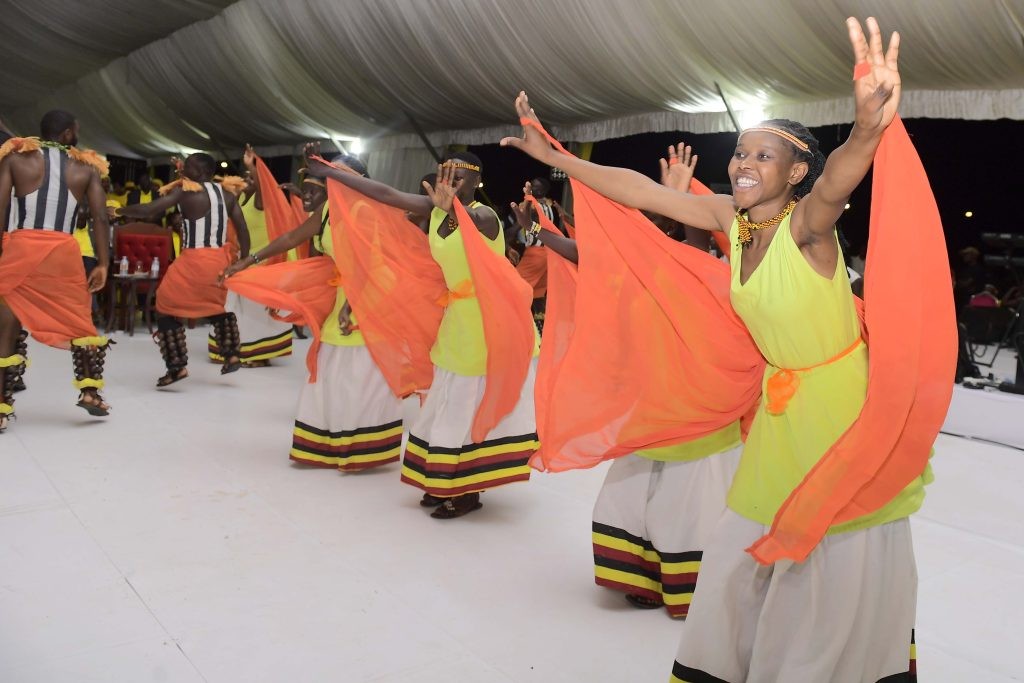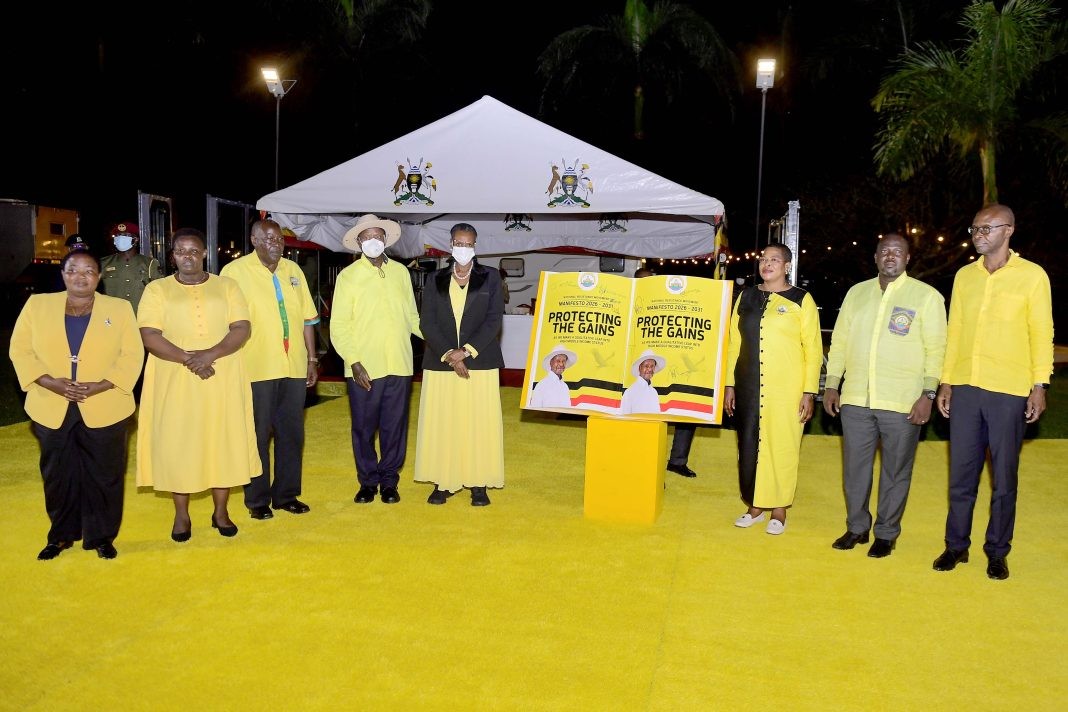By Caroline. N.
The ruling National Resistance Movement (NRM) has officially unveiled its 2026–2031 election manifesto, setting out a five-year plan that the party says will consolidate Uganda’s gains in peace, stability, and development while tackling emerging challenges.
President Yoweri Kaguta Museveni, who launched the manifesto before party leaders, MPs, and invited guests, described the document as a “contract with the people of Uganda,” pledging that the NRM will continue to prioritise transformation through practical solutions rather than promises.
“The manifesto is not just paper. It is a plan of action. We are committing ourselves to building on what has been achieved and addressing the gaps that remain in our society. Our focus is on prosperity, stability, and the empowerment of every Ugandan,” Museveni said.
The 2026–2031 manifesto outlines five key priority areas that the NRM hopes will shape Uganda’s social and economic trajectory over the next half-decade.
At the heart of the manifesto is a promise to accelerate Uganda’s economic transformation. The NRM emphasises agro-industrialization and value addition as the fastest way to create jobs for the country’s youthful population.

The plan highlights the importance of moving beyond subsistence agriculture into commercial farming, with farmers empowered to process, package, and market their produce. Small and medium-sized enterprises (SMEs) are also identified as engines of job creation, alongside new investments in science, technology, and innovation.
Dr. Chris Baryomunsi, Minister of ICT and National Guidance, explained that this pillar reflects Uganda’s realities:
“We have a young and energetic population. What they need is opportunity. The manifesto lays out how government will expand access to credit, skills, and markets to ensure millions of young Ugandans find meaningful work.”
Building on the past two decades of infrastructure investment, the manifesto promises continued expansion of roads, energy, and digital connectivity. The NRM argues that reliable infrastructure remains central to industrialisation and trade.
Flagship projects include upgrading more national and district roads, increasing electricity generation and distribution, and expanding internet access to rural areas. The government also plans to prioritise railway rehabilitation and modern transport systems to ease the cost of doing business.
According to the manifesto, infrastructure is not an end in itself but a catalyst:
“Infrastructure unlocks the productivity of our people, connects farmers to markets, reduces costs for investors, and ensures that no Ugandan is left isolated from development.”
The NRM acknowledges that quality education and skills training remain key bottlenecks to national growth. The manifesto pledges to expand access to universal education while modernising the curriculum to match labour market needs.
A particular focus is placed on vocational and technical education, with the government promising to establish more skills development centres across the country. Digital learning systems, introduced during the COVID-19 pandemic, will also be improved and integrated into mainstream learning.
The party stresses that education is the most sustainable way to empower citizens. “Our goal is to produce skilled graduates who can innovate, create jobs, and compete regionally and globally,” the document notes.
The manifesto promises to strengthen Uganda’s healthcare system, with investments in both infrastructure and human resources. Maternal and child health, universal access to essential medicines, and the expansion of health insurance schemes are highlighted as priorities.
The NRM also commits to scaling up social protection programs for vulnerable groups, including older persons, people with disabilities, and low-income households. The manifesto frames health and social welfare not only as moral imperatives but also as drivers of productivity and national resilience.
Dr. Jane Ruth Aceng, Minister of Health, said the manifesto reflects lessons learned from the pandemic era:

“COVID-19 taught us the importance of preparedness. Our commitment now is to ensure every Ugandan, regardless of their location, has access to quality health care and the dignity of social protection.”
The final pillar of the manifesto focusses on governance, democracy, and stability – areas the NRM considers its strongest legacy. The party vows to strengthen institutions that safeguard accountability and transparency, while maintaining peace and security across the country.
Security, Museveni argued, remains the foundation for all other progress:
“Without peace, there can be no development. That is why our government will continue to invest in professionalising the armed forces, promoting the rule of law, and ensuring that Uganda remains stable for investors and citizens alike.”
With elections due in 2026, the manifesto will serve as the NRM’s primary campaign tool, framing the party as the only vehicle capable of guaranteeing stability while driving development.
Analysts note that while the document mirrors themes from previous manifestos, it places sharper focus on economic transformation and social welfare, in line with shifting public expectations. Critics, however, will likely question the government’s ability to deliver on all pledges given past implementation challenges.
Still, the party insists the new manifesto is both realistic and actionable. “We are not reinventing the wheel. We are consolidating what works and refining what needs improvement,” said Justine Kasule Lumumba, NRM Secretary-General.
As the campaign season draws closer, the manifesto is expected to spark debate across the political spectrum, shaping Uganda’s national conversation about development priorities for the next five years.


